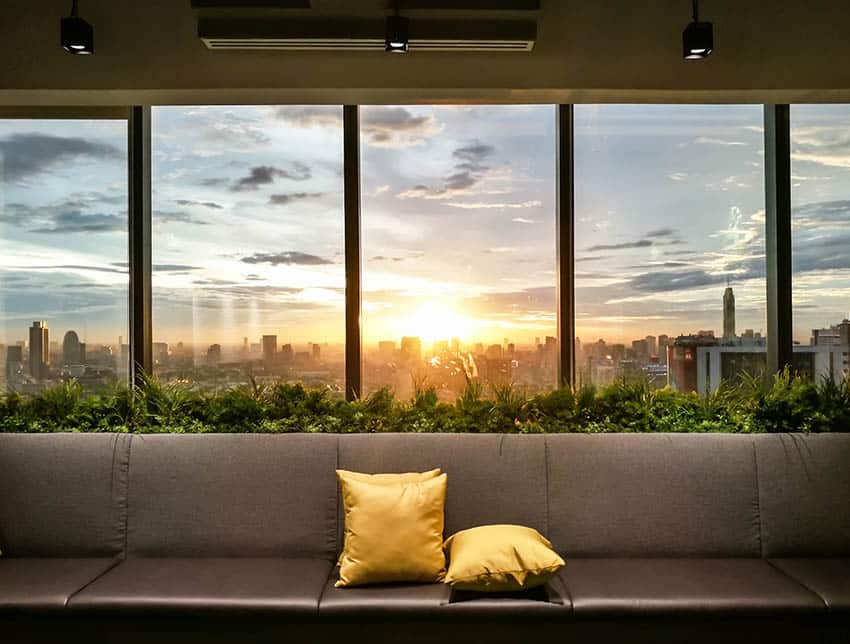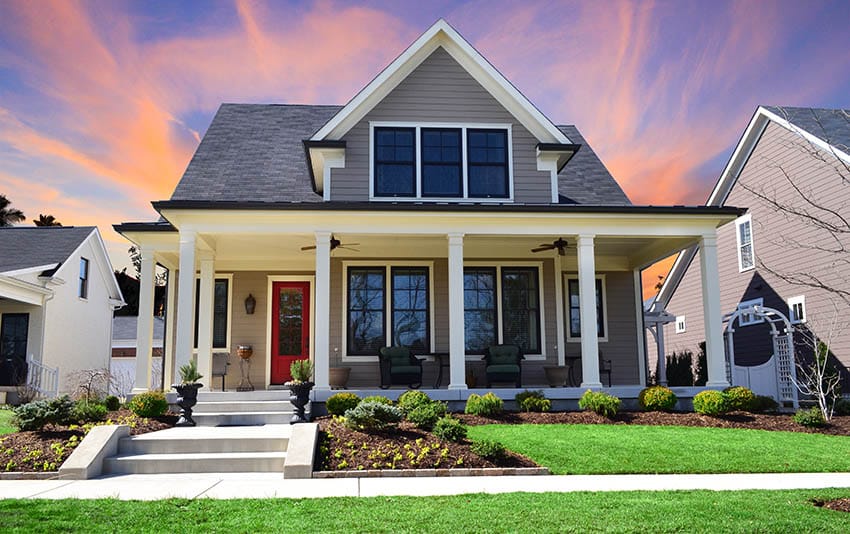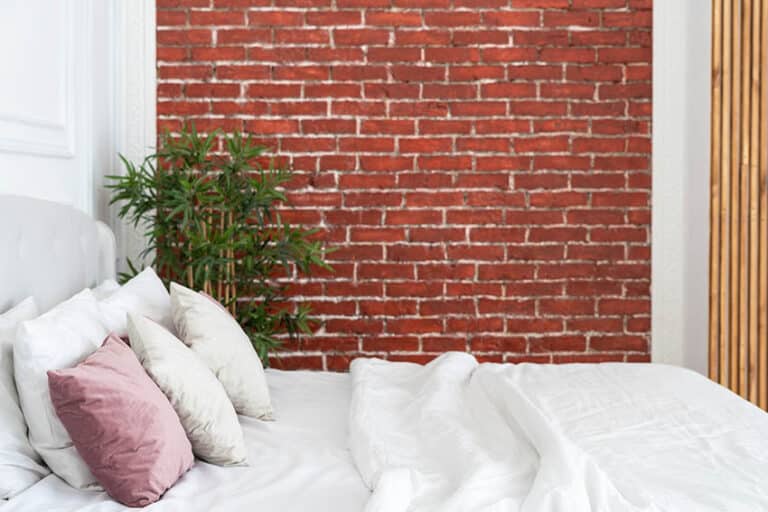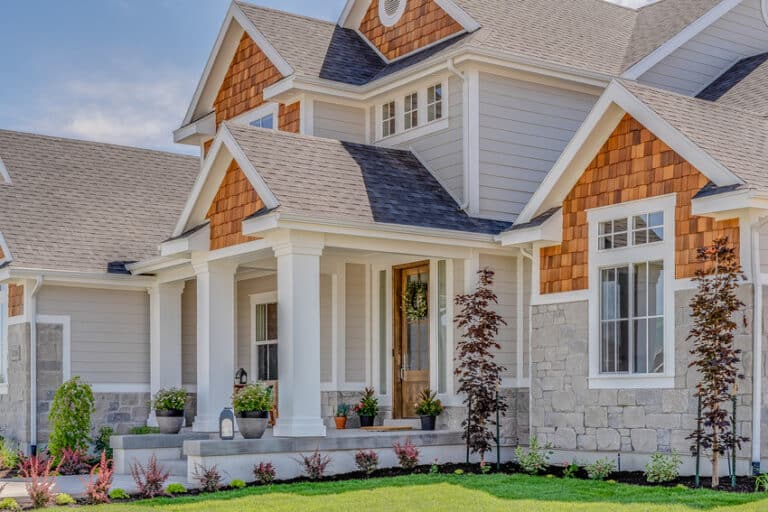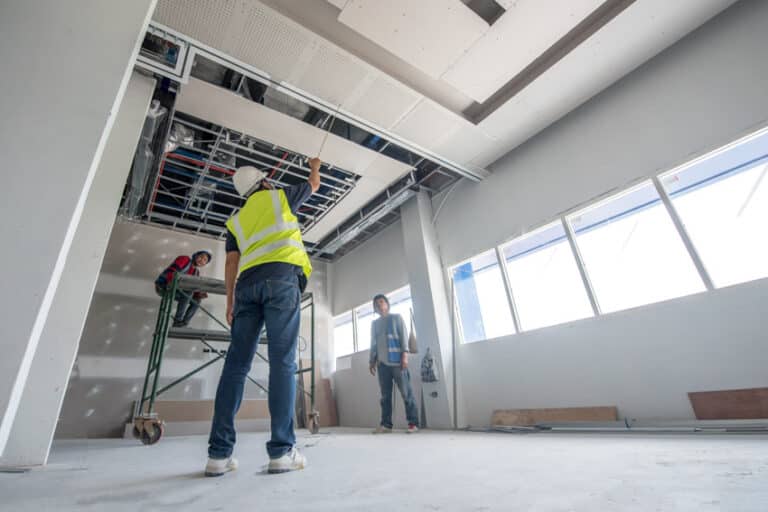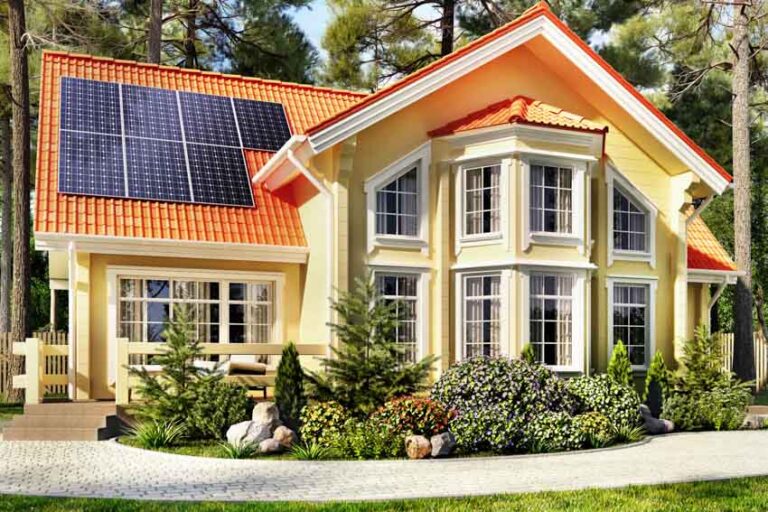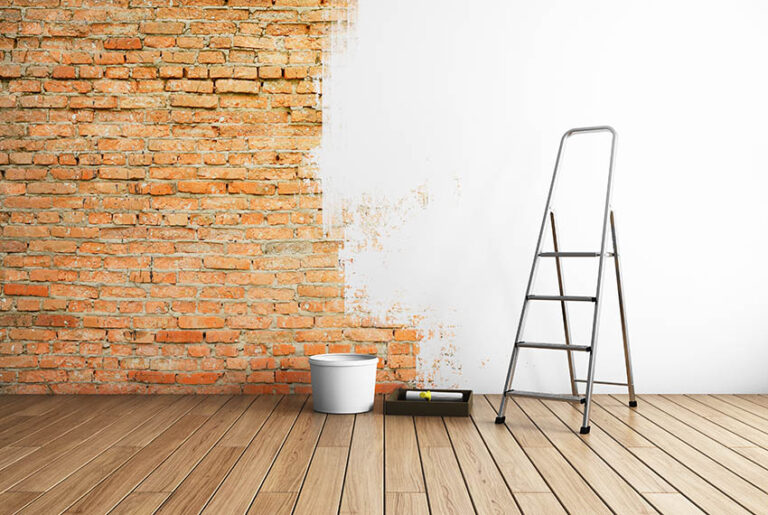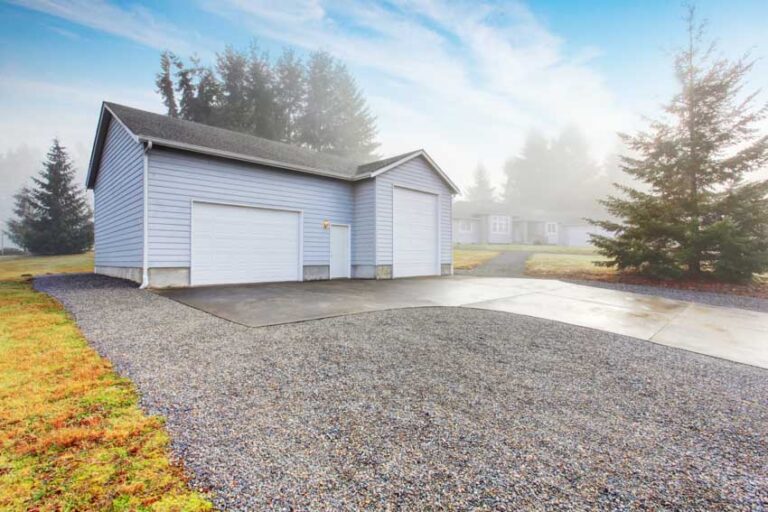Tinted House Windows Pros and Cons
Here’s our guide to tinted house windows pros and cons including cost and whether they are worth it for privacy, UV protection and reduced energy consumption.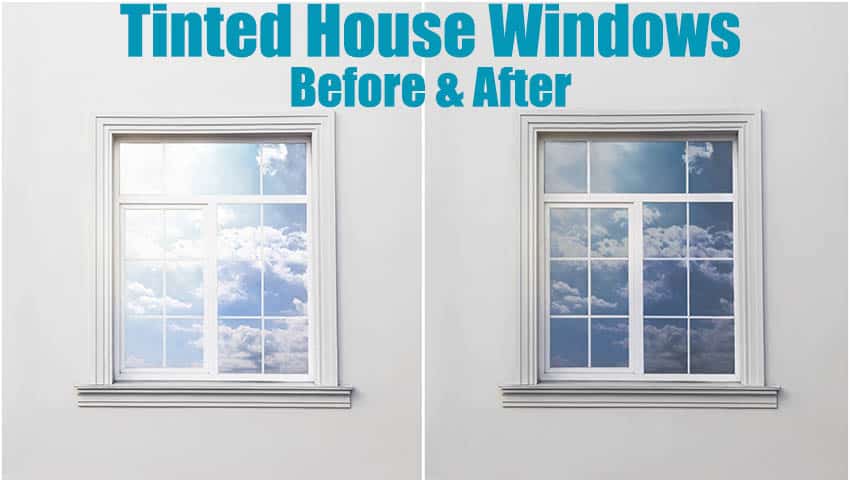
In this article, we’ll go through all the costs and benefits. We’ll also cover the costs of house window tinting and what you can expect from this product in terms of privacy. Finally, we’ll explain when tinting your house windows is worth it, and when to choose another solution.
Applying a film to the inside of the window can achieve several different goals. Films with UV absorbers act as solar shades, but do not darken the light as it comes into the house.
Tinted security window film reinforces the glass with a layer of polyester. Decorative window films can be combined with tint to beautify the window while providing protection.
Each type of window film is best suited for different applications, but there are some benefits they all share.
Tinted House Windows Pros
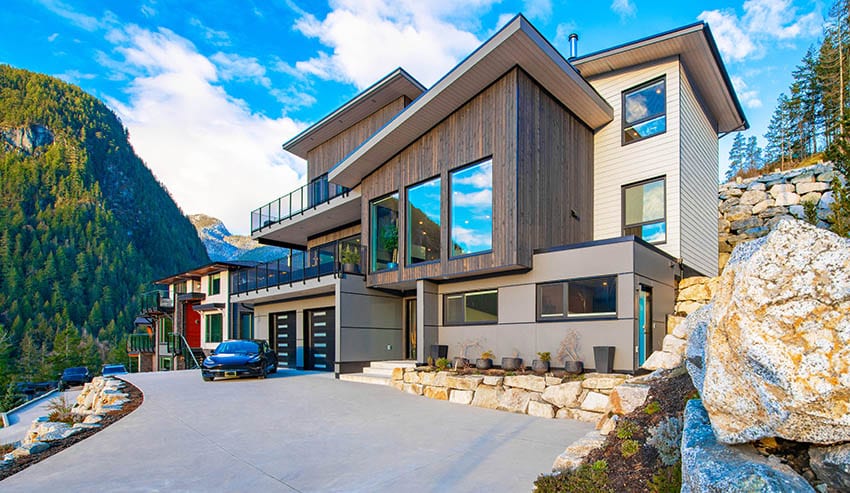
Reduced Energy Costs – One of the biggest drivers of home energy usage is fluctuation in temperature. When the heating and cooling system has to fight against the elements in order to maintain the comfort of your home, it uses a lot of energy.
In the summer, light from the sun heats the air inside your home, and energy must be expended to counteract that heat.
In the winter, the precious warmth generated by your heating system escapes through the glass into the colder air outside, requiring more energy simply to maintain the same temperature.
Tinted windows ease the burden on your heating and cooling systems by reducing the ability of the weather to change the internal temperature of your home.
When the sun beats down on tinted windows, solar heat is blocked and your home stays cooler with less energy. On chilly winter nights, the film forms an extra protective barrier, allowing less heat to escape through your windows. Read more about the different types of windows for your home here.
UV Protection – The intense ultraviolet rays of the sun cause wear and tear to almost every material. While outdoor furniture, paint, and stain is designed to stand up to the sun, indoor products don’t usually include this protection.
As anyone with a sunny window can attest, regular glass doesn’t block the damaging rays of the sun. Anything inside your house that is in the sun’s path as it passes from east to west is vulnerable to fading and degradation.
There are two ways to protect the contents of your home from the sun’s ultraviolet rays. One is to apply a clear film with a UV absorbing ingredient.
This serves to limit the amount of light and heat that enters the home. These clear films are often referred to as ‘solar shades’, and though they don’t darken the window, they are classed as window tints due to their sun-blocking capabilities.
Window film with a color or tint applied doesn’t just absorb some of the UV light as it passes through, it actually blocks it from entering your home. Tinted window film offers excellent protection and will help keep your home cool.
Another benefit of good UV protection is reduced glare inside the home. The screens we spend so much time on can be unusable in bright sunlight. This can cause you to draw to the curtains in your home office so you can see that spreadsheet, or lower the shades in the living room to catch a day game on TV.
With tinted windows, you can keep those windows open, enjoying your surroundings and letting in natural light while you work or play.
Privacy – During the daytime, tinted window film will bounce sunlight back into your yard, making it difficult for outsiders to see in. Even if the sun isn’t shining, the darkened tint provides privacy by decreasing the amount of visual contrast, which makes it harder for passers-by to clearly pick out details of what is going on inside.
Security – Security window film, which is available in clear and tinted varieties, provides extra protection against smashed windows.
Whether from the fist of a would-be burglar or a tree branch-turned-projectile in the latest storm, windows lines with security film stand up better to damage than unprotected windows.
The extra protection comes from a thin plastic layer that provides support to the glass during impact. Should the window break, the damage from the glass will be less, as the window film helps keep it from flying into separate pieces. For this reason, it is popular in hurricane-affected areas.
Tinted windows are the ideal solution to many problems. If you want to keep your curtains open without feeling exposed, protect the contents of your home from UV damage, and save on energy bills, it could be just what you’re looking for.
Tinted House Windows Cons
There are some potential drawbacks associated with tinted house windows. Consider these before making an informed final decision.
Too Much UV Protection – If you live in an area of the world that doesn’t get much sun, the impact of solar rays on your furnishings is minimal.
Additionally, some colder climates rely on solar heat to supplement their heating. If this is the case for your home, you may find it to be too cold after tinted windows are installed. A reputable window consultant should be able to provide you with sound advice, tailored to your situation.
Additional Cost – Tinting your house windows isn’t free. It requires, at minimum, purchase of the supplies and your time and effort to install the window film.
If you opt for professional installation, you’ll add labor costs to your budget. Remember that you don’t have to tint every window in your home to reap many of the benefits of tinted house windows.
House Window Tinting Cost
The price range for tinted window film is between $2 and $14 per square foot. The least expensive window films are the most basic.
They may be primarily aimed at providing privacy or UV protection, but not both. At the higher end of the range, you’ll find security film with UV blocking and privacy features.
You can install window film yourself, but it’s a gamble. The film sticks to everything, including itself, making it difficult to wrestle onto the window. Not only that, it must be applied perfectly or you’ll be left with wrinkles and unsightly bubbles. Professional installers guarantee a professional end result.
The price range for labor to install tinted house windows varies from $1 to $5 per square foot. There is usually a minimum job charge of $250. Professional installers may have access to discounted material.
Standard, flat windows are the cheapest and easy to cover in tinted window films. Windows that are much smaller or larger, constructed of many small pieces of glass, or unusually shaped are more difficult to work with, and an additional cost applies.
The average cost for professional application of window tint to five standard size windows is $350.
When done right, you won’t even notice the tint on your windows, just the benefits that it brings. When installed incorrectly, tinted window film becomes a thorn in your side, as you’ll notice every imperfection.
If you want to save on installation costs, and do it yourself, practice your technique on the least conspicuous window in the house before tackling picture windows in the front room.
House Window Tinting for Privacy
During the day, tinted and reflective films applied to windows provide privacy, as the light from the sun is bounced back into the eyes of anyone outside the home.
At night, when the light comes from inside the home and there is no sun to reflect, tinted windows can’t offer the same level of privacy. In this case its best to opt for one of the many different types of curtains for better privacy.
However, anyone looking through tinted glass will have a harder time picking out details due to the decreased contrast in color.
Is Tinting House Windows Worth It?
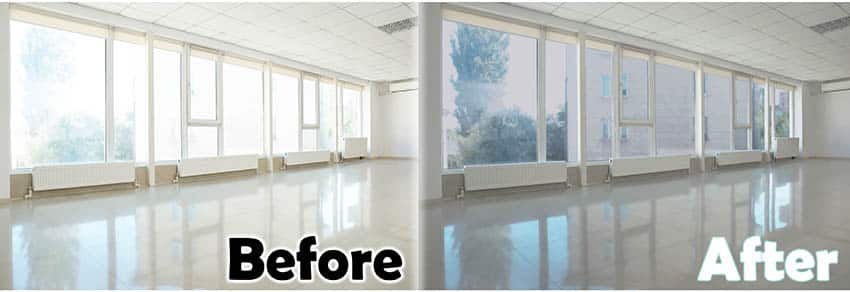
If you depend on the sun to supplement your heating system, tinted windows could actually raise your energy costs instead of lowering them. In that case, you must weigh the privacy, security, UV protection features against the decreased heat from the sun.
This relatively low-cost investment can solve several problems at once, and is almost always worth it. Tinted window film usually lasts between five and six years, so if you’ll need to replace the windows within that time frame it’s probably best to wait.
Additionally, if you have older lead glass windows that aren’t a uniform thickness, window film will be difficult to install and may not last as long as film applied to the tempered glass used in newer windows.
For a home with relatively new windows that frequently overheats due to sun exposure, tinted windows are absolutely worth it. Not only will tinted windows lower the strain on your cooling system, your home will be a more enjoyable place to spend time when the sun isn’t glaring in your eyes.
For more similar content visit our page about the types of window blinds.

